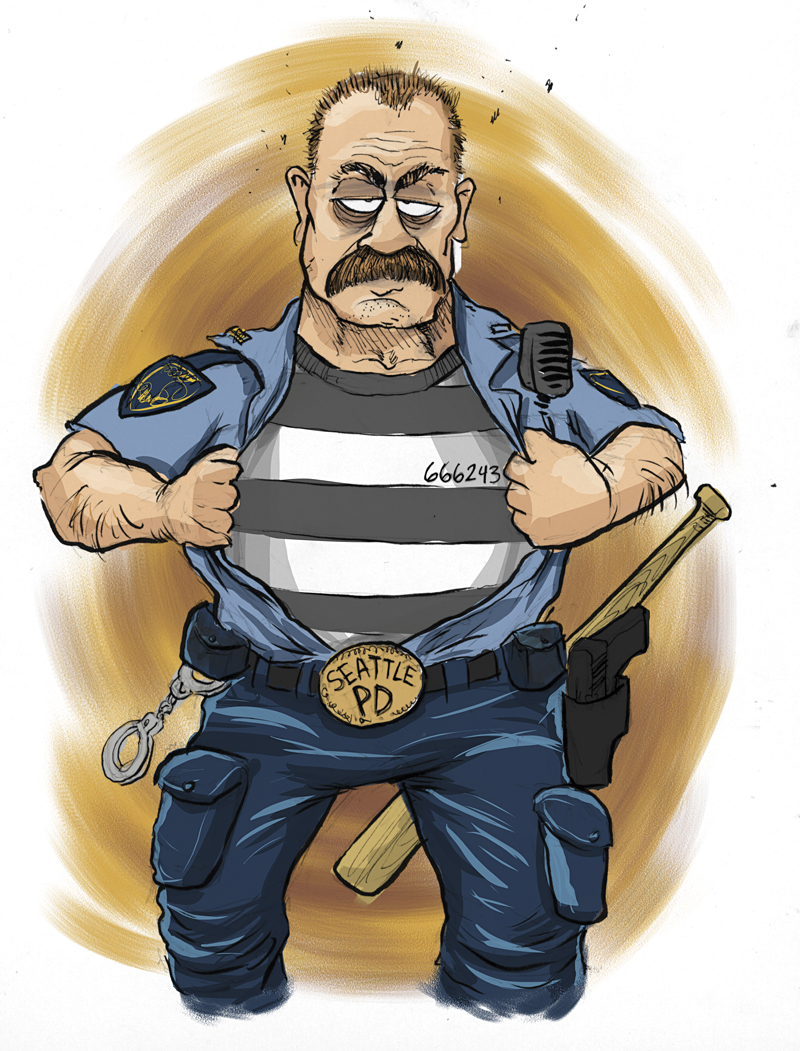Dallas Smith, the 18-year-old Monroe teen who, in a drunken rage, stabbed a man at a party after he made fun of her “smelly feet,” was sentenced to 15 months in prison on Friday. The judge is also making her write a “research paper” about the detrimental effects alcohol can have on someone’s life. Perhaps we can be of assistance.As the Herald
reported on Friday, the paper has a minimum length of six pages (no word on whether the judge will allow double-spacing).For anything longer than a couple pages, an outline is usually a good place to start. So here you go.Introduction (300 words)A. Something that captures every essence of wretchedness that comes from being an 18-year-old with no prior convictions, but now being forced to share showers with women who have neck tattoos.1. The Night of Sept. 7, 2010 (700 words)A. Spell out everything that happened on the night you stabbed Willy Simpson.B. Make sure and include what you’d been drinking and why. Remember: This judge wants you to focus on booze and how it ruins lives. So picture your story being read to terrified high-school freshmen, and don’t be afraid to talk up the amount of impairment you were under.C. The words: “stupid,” “childish,” and “without thinking about the consequences” are your friends.2. Your Drinking Problem (700 words)A. It came out during the trial that despite having no previous convictions, you’ve been developing a drinking habit for a while. That means that if you come back with a “this-only-happened-the-once” essay, the judge ain’t gonna buy it. I’d mention every experience you’ve ever had with alcohol. You want to set the bar low, so when you’re clean, sober, and ready to get out of prison, everyone can remark about how far you’ve come. 3. Your Regret at Having Nearly Killed Someone (700 words)A. What almost all criminals have a hard time showing is true, unmistakable regret at hurting another person. Some regret getting caught, but only a few seem to truly feel for their victims. You need to include an entire section dedicated to Willy Simpson and how you’ve permanently affected him and his family.B. “Sorry” won’t be enough in this one, so try and come up with a plan to make up for it–not with Simpson himself, as he probably never wants to see you again, but with others by, I don’t know, teaching them some of the better anger-management options besides grabbing a knife and plunging it in someone’s back.4. Conclusion: What You’ll Do When You Get Out (700 words)A. Start with getting a job. In a world where most convicts end up right back in prison within a couple years, just getting a job is wildly impressive to judge and parole-officer types. So have an excellent plan laid out in terms of school and a career (even though your crminal record will probably hinder some options you may have). Consider, for example, journalism.B. Talk about how you’ll stay sober. We both know there’s little chance that anyone who’s under 20 years old can realistically promise to never drink again. That doesn’t mean you shouldn’t try. Again, the judge is looking for full acceptance of responsibility and radical plans to change your life. Fulfill him on both needs.C. Throw in a few memorable moments from your time incarcerated. Perhaps Suzy “One-Eye” in Cell Block H offered you some toilet hooch, but you said no. Or maybe your cellmate has terrible-smelling feet, but is sensitive about it and you two have become fast friends. Just remember not to get too mushy–you want to show how miserable you are in prison and how much you never want to come back.All in all, show regret, humility, and the sense that you won’t do it again. The judge has given you until May 2012 to get the paper done, so anything less than a masterpiece will seem half-assed.





